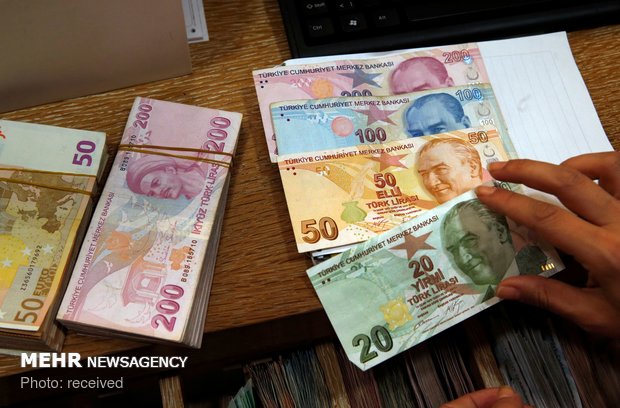Unprecedented crash of Turkish stock exchange

reports dropped by 4.9 percent , the most severe weekly collapse since the global financial crisis in year 2.
In response to this crisis, the Turkish Capital Market Council (CMB) and the Istanbul Stock Exchange implemented a set of emergency measures to control the conditions, control emotional behaviors and maintain investor trust.
The first step was to ban the sale of borrowing or in other words daily sales on the stock market. According to the CMB section issued on March 5, all borrowing sales traded on the Istanbul Stock Exchange were suspended for a month. The decision, which was immediately implemented, was followed by surveys showing that a significant portion of the price of prices was due to artificial or daily sales pressures
at the same time, stock redemption instructions were also reviewed by stock companies. Previously, companies were only allowed to redeem their shares within the specified price range; But with the aim of supporting share price and injecting confidence in the market, this restriction was eliminated.
, companies were allowed to buy their stocks even above the price of the last transaction or current market offer. In the same context, the budget ceiling for redemption was also removed so that companies could act more powerful.
, for example, Turkish Communications and Agriculture Bank, in the early days after the new regulations are announced, announced that they had begun the stock redemption program. Turksel redeemed nearly 1.5 billion lira in four days, which led to a share price in the final week of March to 6.5 percent.
Step Three, reducing the requirements of Marjin or in other words credit margins for investors. The ratio of Marjin decreased from 2 % to 5 %, thus able to make a higher volume of credit transactions with less capital. On the one hand, the move helped increase liquidity in the market and, on the other hand, reinforced the investment incentive.
at a larger level, the Central Bank of Turkey took extensive intervention to curb currency market turbulence and securing the money market. According to Reuters, the central bank injects nearly $ 5 billion in foreign currency in a five -day interval and increased the loan interest rate by one percent overnight. Also, it suspended the weekly auctions Rippo to have more control over liquidity.
, in the meantime, the Turkish Capital Market Stability Fund also played a significant role. The fund, which aims to prevent structural crises in the market, was coordinated by the Turkish Presidential Office and purchased parts of market symbols such as Koç Holding, Turkish Airlines and Akbank. In particular, buying 2 % of Koç Holding shares by the Turkish Capital Market Stability Fund was considered an important signal for market participants and led to a relative return of relaxation.
Also, three major Turkish investment agencies such as İş yatırım, Garanti Portföy and QNB Finansinvest also announced on March 6 that they had made a major purchase of petrochemical, banking and transportation by analyzing some symbols. For example, İş yatırım bought Tüpraş and Halkbank shares for 2 million liras, resulting in a 3.5 percent increase in the price of the two shares.
This set of actions, although initially doubtful, gradually made the market space more balanced. The Bist 100 index recorded a 6.5 percent increase on March 5, and the volume of transactions increased by 5 % compared to last week. Experts have warned, however, that political challenges are still there and the current, fragile and dependent on future developments.
Istanbul Stock Exchange Crisis was a classic example of exposure to regulatory agencies with the turbulence of the political crisis. The experience showed that the combination of regulatory tools such as banning borrowing sales, facilitating stock redemption, reducing credit requirements and currency interventions can prevent deep crisis in the short term; However, it will be vital for long -term stability, the return of public confidence and the radical resolution of political crises.
for the country’s capital market, this experience can be a lesson. While the Iranian stock exchange has been repeatedly influenced by political, economic and even psychological instability, the need to design and use rapid and multi -layered reactive packages is felt. Measures such as reviewing trading requirements, facilitating corporate support mechanisms, updating credit guidelines and creating active and agile stabilizer , can be part of these solutions.
However, what is most important is the rebuilding public trust in the market mechanism and strengthening independent and powerful supervisory bodies; Because long -term stability will only be achieved in the shadow of transparency, accountability and prediction.


